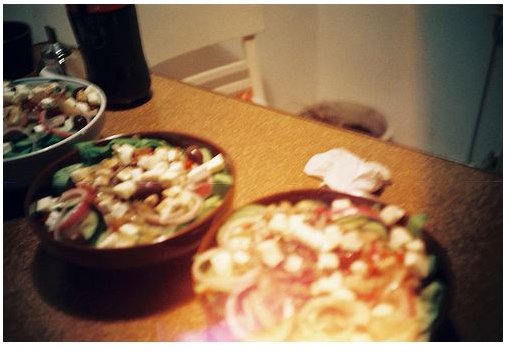Summer Foods to Avoid: Meat and Poultry, Processed Foods, and Carbonated Drinks
People generally tend to eat less and drink more fluids during the summer months, leading to the body lacking its regular nutrition quota. Most of the popular choices in such a light meal plan for summer are furthermore not balanced and rank high in calories.
The best summer diet includes foods with high water content to cool down the body, foods that are free of empty calories, but still provide adequate nutrients, and fluids that help in remaining hydrated.
Heavy foods such as meat, eggs, and fatty diary products contribute to a rise in body temperature, do not digest easily, and accentuate the discomforts of summer. Spicy and salty foods have the same effect.
The best summer diet plans include:
- Vegetable soups that hydrate the body, help you eat less, and stay light.
- Salads comprised of vegetables such as chopped cucumbers, carrots, tomatoes, cabbage, beetroot, lettuce, sprouts, and lime juice.
- Curd based preparations such as flavored yogurt. Curd and mango contain calcium and vitamin B to help soothe allergies and ulcers that are common during hot weather.
The Harmful Effects of Processed Foods During Summer Months

Deep fried processed foods and snacks such as potato chips, fries, hot dogs, cheese burgers, and pizzas are always unhealthy. In summer months, they are even more harmful as they contain a lot of oil, which on entering the body has the thermal effect of increasing the body temperature.
Healthier summer food snack options include popcorn, sliced fresh fruit, sprouts, and salads. A good eating habit is to eat such snacks before venturing out in the evenings, to resist the temptation of attractive processed snacks.
Unrestrained consumption of ice cream during the summer months adds calories. Avoiding chocolate sauce and nut toppings on ice cream brings down the calorie count. Better alternatives to fattening ice cream include low fat ice creams, sundaes, strawberry fudge brownies, or orange candies.
Fluids to Avoid During Summer
Summer is the time when heat induces one to consume more fluids to remain hydrated.
Most people succumb to the temptation to dip into carbonated beverages such as sodas and coke. Carbonated beverages are, however, harmful on many counts:
- Carbonated beverages contain empty calories that add to the waistline.
- Carbonated beverages are rich in sugar and actually contribute to dehydration instead of helping one stay hydrated. The feeling of satiating thirst is momentary, and consumption of carbonated beverages leads one to become thirstier than before in a short while.
Like carbonated beverages, cocktails, margaritas, and daiquiris have high sugar contents and cause excessive calorie intake.
Coffee contains caffeine, and excessive caffeine consumption leads to sleep deprivation, thereby increase stressing. Coffee and alcohol are diuretics and increase urination, leading to excessive water loss from the body.
Cold coffee and ice cream also adds to the calorie count substantially, so monitor intake.
Healthy drinks for the summer diet include “cold-coffee on the rocks” that contain more ice than milk, cappuccino, tea, lemonade, low fat milk shakes, and last but not the least, water! A glass of water is the most effective and satisfying drink to quench thirst.
Diet Adjustments to Counter Fatigue
The hot summer months are usually associated with fatigue and slumber, because of the body’s effort to counter the effects of hot temperatures sapping energy from the brain and muscle cells. Diet adjustments in summer months to reduce fatigue include:
- eating a wholesome breakfast and consuming lunch in moderation
- opting for easier-to-digest vegetarian sources of protein such as beans and peas instead of egg and meat
- opting for summer diet foods such as fresh watermelon juice instead of canned fruit juice
- avoiding consumption of oily foods that are difficult to digest
- drinking plenty of water to remain hydrated.
A major cause for fatigue is high blood sugar levels, and for this reason it is prudent to avoid foods with high glycemic indexes in the hot summer months. Besides carbonated drinks, caffeine, processed foods that are high in sugar, flour, bread, and pastries cause a surge of blood sugar.
Dietary Tips that Help in Preventing Food Borne Illness
The hot and humid summer months cause multiplication of bacteria, such as salmonella and E coli 0157:H7, that are responsible for food borne illnesses.
Diet tips that help in preventing food borne illness during the summer months include:
- Avoiding rare-cooked summer food - eat meat and poultry well done. The safe temperatures for cooked foods are 71° C (160° F) for ground beef, 74° C (165° F) for leftover food, and 85° C (185° F) for whole poultry.
- Consumption of food when hot. Bacteria grows when food cools down slowly.
- Avoiding cooking food partially and then barbequing it prior to consumption. Heating, cooling, and then reheating is a sure way for bacteria to grow
A common myth is mayonnaise is a major culprit in food-poisoning outbreaks. The reality, however, is mayonnaise actually retards the growth of food-borne bacteria.
Avoiding the summer food that causes harm during the summer months in favor of healthier alternatives aids in taking advantage of the benefits of the warm climate, and helps individuals remain at the top of their energy levels.
Disclaimer - Please read this disclaimer regarding the information contained in this article
References
- Health Canada. Summer Food Safety.
- Rediff.com, Foods to cool you down this sizzling summer.
- Parab, Priyanka. Diet tips for this Summer!
- Black, Rosemary. Safe to eat? Five summer food myths
Image Credits
- Flickr.com, Lukatoyboy
- Wikimedia Commons
